- Home
- Winston Groom
Better Times Than These
Better Times Than These Read online
Winston Groom’s novel Forrest Gump, the basis for the smash motion picture starring Tom Hanks, has won him resounding national acclaim. Now Pocket Books is proud to bring Winston Groom’s extraordinary first novel back into print.
Summer, 1966: A few months earlier, First Lieutenant Billy Kahn was studying geology on an ROTC scholarship; now he is the Executive Officer of Bravo Company, responsible for leading over one hundred young men into combat. But his problems are not limited to the Vietcong. There’s Colonel Jason Patch, his battalion commander, a cold and callous man willing to sacrifice troops for strategic position; Lt. Brill, an unbalanced sadist whose bizarre behavior spells trouble for the whole company; and Kahn’s own struggles with the death all around him, his sense of duty, and the American mission in Vietnam. And just when Kahn wins a Silver Star, he is drawn into an impassable moral quagmire that could mean his downfall—or his redemption.
AFTER THE BATTLE
Kahn, his wrist bandaged tightly in gauze and tape, moved among the wounded, offering them cigarettes and encouragement. The shrapnel had barely skimmed the back of his hand, digging out a little half-moon chunk of skin. Another eighth of an inch and he might have been out of it himself with a severed tendon or splintered bone.
There were many men, officers among them, who would have given a lot at this point for such a wound, but Kahn wasn’t thinking about that—one way or the other. He was consumed by a deep, yet controlled rage; an anger so fierce he probably could not have expressed it in words even if he had sat down and tried. It was as though he had spent the past three hours of his life in a slow-motion automobile wreck in which he was able to experience the terror of going out of control and still observe, at the same time, the injuries to other occupants. It was a hateful, helpless feeling.
POCKET BOOKS, a division of Simon & Schuster Inc.
1230 Avenue of the Americas, New York, NY 10020
Copyright © 1978 by Winston Groom
All rights reserved, including the right to reproduce this book or portions thereof in any form whatsoever.
For information address Simon & Schuster Inc.,
1230 Avenue of the Americas, New York, NY 10020
ISBN: 0-671-52266-3
First Pocket Books printing December 1994
POCKET and colophon are registered trademarks of Simon & Schuster Inc.
Cover art by Dominick Finelle
Printed in the U.S.A.
Author’s Note
This work is fiction. Accordingly, some of the terrain has been altered and military history rewritten to suit the story line. For instance, there is in fact an Ia Drang Valley, but most of the battles there took place a year before this tale is told. There are no such places in the Ia Drang as the “Boo Hoo Forest” or “The Fake,” and while there were several Monkey Mountains and Happy Valleys in Vietnam, none that I know of were located where they are put in this novel. Furthermore, there was never a Fourth Battalion of the Seventh Cavalry Regiment in Vietnam, and those units of the Seventh Cavalry that did serve there did so, by all accounts, honorably and well. Finally, any character appearing in this book is wholly made up, and no similarity to anyone dead or living is intended.
East Hampton, Long Island
September 23, 1977
For two soldiers—
My father, who served in a different war in different times; and James Jones.
Table of Organization and Roster
a/o 21 July 1966 (incomplete)
Brigade Headquarters & Headquarters Company
Butterworth, Samuel G.; Brig. Gen.—Commanding
Dalkey, Robt. C.; Maj.—Aide
Holden, C. Francis, III; 1/lt.—Aide
Dunn, Richard A.; Maj.—Signal Liaison
Greaves, Wilson P.; Maj.—Chaplain
McCrary, Michael T.; 1/lt.—Graves Registration
Fourth Battalion Seventh Cavalry (airmobile)
HEADQUARTERS:
Patch, Jason C.; Col.—Commanding
Flynn, Thomas P.; Capt.—Aide
Kennemer, Frederick N.; Capt.—Adjutant
Bravo Company
HEADQUARTERS:
Thurlo, David A.; Capt.—Commanding
Kahn, William Sol.; 1/lt.—Executive Officer
Trunk, Myron B., Jr.—1/sgt.
Hepplewhite, Norman E.; Spec/4—Clerk
Bateson, Sidney P.; Spec/4—Radiotelephone
PLATOON LEADERS:
Sharkey, Stephen D.; 2/lt.—1st Plt.
Brill, Victor L., Jr.; 2/lt.—2nd Plt.
Donovan, Sean P.; 2/lt.—3rd Plt.
Inge, Cyrus A.; 2/lt.—Weapons Plt.
NONCOMMISSIONED OFFICERS:
Dreyfuss, Leonard T.—plt/sgt, 1st Plt.
Groutman, Gustavus R.—plt/sgt, and Plt.
Moon, Rollie I.—plt/sgt, Weapons Plt.
ENLISTED MEN:
Acquino, R. G.—rflmn • Conway, S. R.—medic • Carruthers, D. C.—rflmn • Crump, Homer R.—rflmn • DiGeorgio, Louis—rflmn • Dunbar, Tyron A.—rflmn • Harley, O. V.—rflmn • Helms, W. R.—rflmn • Hixon, T. G.—ammo brr • Maranto, J. B.—machguner • Miter, Harold N., Jr.—ammo brr • Muntz, Seymour H.—machguner • Poats, Edward—machguner • Spain, B. L.—ammo br • Spate, Leon—rflmn • Trent, C. T.—rflmn
OTHERS:
Fox, Carter; Capt.—JAG • Gore, Timothy B.; Capt.—JAG • Maitland, Paul, Lt. Col.—JAG • Peck, Oscar A.; 2/lt.—replacement • Range, John T.; 2/lt.—replacement • Sonnebend, Peter; Capt.—Pub. Info. Off. • Spivey, Edward; 1/lt.—aviator • Tolson, Mayon; Capt.—Charlie Co.
There’ll be better times than these,
In the Seventh Cavalry,
Just you wait and see,
Garry Owen!
—from a song of
The Seventh Cavalry Regiment
Part One
THE
VOYAGE
1
The gray hull of the troop transport loomed at the dock like a ghost ship, and the men, milling around the olive-drab Army buses that stretched into the fog nearly half a mile, had been trying hard to get a good look at it for an hour. Sometimes the fog would thin for a moment and they could see the gaping square hole in the ship’s side through which men from other buses, carrying duffel bags and rifles and wearing helmets, were boarding. Occasionally they could catch a glimpse of the decks, on which there seemed to be a great clattering of activity, but it was too fleeting for the men to tell what was going on, and they had to strain to see what they could see.
They could hear the roar of big cranes loading cargo into the hold, but they could not see them either. And when the cranes stopped every so often, they could hear the lapping of water against the concrete pier and from the direction of the ship they could hear a great deal of yelling, as though a hundred men were yelling at each other at once, but they could distinguish nothing of what was being yelled. And above this, there was the blaring of voices from loudspeakers and bullhorns which echoed down the canyon of white terminal buildings and blended with the yelling and the roar of the dockside cranes into a single gigantic racket coming out of the fog.
Bravo Company had been waiting beside the buses for nearly two hours, talking quietly, sitting on duffel bags, smoking and cursing the damp Pacific chill which none of them had anticipated in July. Some of the men simply stared out into the fog toward the ocean, or toward where they thought the ocean was—in the opposite direction from where the ship lay—because they did not want to be reminded of why they were here. These few men seemed lost, most of them, in private thoughts about their homes and girlfriends and other things very far removed from this particular dock at the Presidio Army Transport Terminal on this particular San Francisco summer morning.
/> It was nearly noon when the fog lifted. Almost magically, it simply vanished from the dock and moved off about a mile into the water, lingering as a whitish wall as far as anyone could see in either direction. When this happened, and the men could finally see the ship, everyone got a strange feeling in the pit of his stomach, a feeling which was not exactly fear, though that had something to do with it, but more of excitement, partly because most of them had never before seen a ship this close and partly because they knew it was going to take them across ten thousand miles of ocean and deposit them to fight a war which for the last year they had been trained for, hollered at about and generally saturated with; and yet most of them still did not have the slightest understanding of what it was all about.
In nineteen hundred sixty-six the dark specter of war was moving across America, vexing the spirit that had conquered the tyrants of Europe and Asia. In plush offices and hushed marble corridors of official Washington, older men, many of whom had never heard a shot fired in anger, spoke boldly of defeating Communism and establishing freedom and independence for the peoples of Vietnam. The men boarding the transport were among the first wave of an entire Army that was to follow by the end of the year, and yet to them, all these things mattered little. They knew their departure from the dock would signify that it had begun, and their concerns now were mostly with themselves. Each in his own way realized that this voyage was merely a fortuitous delay of an inevitable adventure from which none of them would return unchanged and some would not return at all.
Word came down shortly after the fog lifted that Bravo Company was to get into formation to go aboard. The men were told this by the noncoms, who had been told by the platoon leaders, who had been told by the Company Commander and the Executive Officer, who had been told by someone else up the line to have the men pick up their gear and get it to hell into some kind of order and sling their weapons and put their helmets over their bald-shaven heads and get ready to move out; but of course they didn’t actually move out for another hour and a half.
Private Homer Crump, peeling one of the tangerines his mother had sent him from Mississippi, offered a section to his squadmate Private Louis DiGeorgio, of Bayonne, New Jersey.
“Fuckin’ shit, Crump, all you do is eat. Whataya gonna do when we get there—climb up a tree and eat bananas?” DiGeorgio snorted, sticking the whole section into his mouth and squashing it between his tongue and his teeth.
Crump worked the skin from the rest of the tangerine with his big bony fingers; looking a little hurt, he eyed DiGeorgio carefully.
“You always makin’ fun of me, ain’t you, Dee-Gergio? You et the tangerine, didn’t you? Then you make fun of it. You bolo on the rifle range and I help you get a rating and you make fun of that too. How come you don’t never like nothin’, Dee-Gergio?” Crump said, stuffing the skin of the fruit into his fatigue blouse pocket.
“Cause yer gonna get yer ass shot off over there and all ats gonna be left is a buncha stinkin’ fruits, that’s why, Crump. Whatdayathink we’re goin’ to here—a fuckin’ picnic? Ya want ’em ta pack us a box lunch or sompen? Ol’ Charlie starts shootin’, what’ll you do? You’ll be runnin’ around handin’ out fuckin’ tangerines to people steda shooting ya blooker, I bet! Yer probably be throwin’ ’em steda grenades.” He looked up and down at Crump’s lanky frame. “That’s why, Crump, cause ya don’t know what the fuck’s goin’ on,” DiGeorgio said, shaking his head slowly as though he were speaking to a certifiable idiot.
“Awright, les go” came the cry down the line, and the men picked up their duffels and rifles and threw them over their shoulders. “Route step, harch,” a voice roared, and Bravo Company moved away from the buses they had learned to loathe since basic training, but which had suddenly become their last remaining link with the world they knew. A few of the men, among them the ones who earlier had stared out toward the ocean, looked back at the ugly, uncomfortable vehicles much in the same way as a prisoner on his way to the electric chair might glance back at his cell.
As Bravo Company moved closer to the ship, the sources of the noise and commotion they had heard through the fog became apparent. The dock was like a crazyhouse. Dozens of men were rushing about moving boxes and crates. One of the cranes the men had heard was lowering huge green metal CONEX containers into the ship’s hold. This was the brigade Basic Load, the supplies to keep it going in the field for a month in case it couldn’t be resupplied. Another crane was lowering a canvas-covered howitzer. Men on deck with bullhorns shouted instructions down to the crane operators. Rifle companies formed up to go aboard. A dozen men, handcuffed together, these without rifles, filed up the boarding ramp, escorted by MPs in bright black helmets. These men, Bravo Company would learn later, were rounded-up AWOLs, who would spend their monthlong voyage in the brig.
Cattle, thought Second Lieutenant Victor Brill, who had spent much of his twenty-three years in and out of military schools for progressively worsening behavior and who was therefore well qualified to form this opinion. After the endless hours of penalty tours and drill he had marched as the result of some transgression or other, Brill knew, or at least thought he knew, what it felt like to be cattle.
He had seen them all his life—from his grandfather’s ranch in California to the big pens near Fort Sill, Oklahoma, and at a variety of places in between.
Cattle were stupid. They were not like things actually alive which had feelings and thoughts and could rage against people who abused them and made them do things they did not want to do. No sir.
About the only thing cattle did was breathe and eat and then be eaten themselves.
He had never seen cattle get mad—even when he’d hit them between the eyes with a ball-peen hammer to get them moving. Brill pictured the cattle in the pastures his grandfather kept, waiting to be put into chutes for the slaughterhouse. No matter how hot it was, or how mean you treated them, the cattle just stood there and took it. And God knew why, but they always wanted to bunch up, usually in a tiny corner of the pasture. It could be a hundred and one goddamned degrees, but there they were, bunched up, fucking lying all over each other in the hot sun, flopping their tails, waiting for somebody to come along with a prod and get their dumb asses moving into the chutes. It reminded Brill of how they’d yelled at him in Infantry at Fort Benning School.
“Goddamn it, Lieutenant, don’t let those men bunch up—one mortar round would get every one a you.” Thrashing through those Georgia thickets with a flock of dumbass recruits who kept bunching up against each other; that was when he’d begun to see them as cattle.
As the last of the AWOLs filed aboard, Brill narrowed his sky-blue eyes, smiling thinly, and turning to Sergeant Trunk, the Company First Sergeant, he said, “Cattle.”
Trunk, knowing what Brill meant, but knowing it for entirely different reasons of his own, replied, “Yessir, that’s cattle okay; that’s cattle.”
It was then that the men heard the music.
At first they couldn’t really hear anything they could distinguish as a tune, because of all the racket from the dock and the ship, but after a few minutes they began to pick out the notes in between the racket, and almost simultaneously they recognized it, the forlorn trumpet and drums, burbling above the hubbub. It was their song, “Garryowen”—the battle tune of the Seventh Cavalry, which most of them had sung both drunk and sober for the past year, in the cigarette-stinking, beer-swilling ratholes they had called clubs; the song they had been made to learn, along with their General Orders, when they first joined the Regiment.
The Troop, they had been told, was the only troop to have joined—as if they had had a choice at some point—with a history as glorious as any in the United States Army: the Fourth Troop, now Fourth Battalion, Seventh Cavalry.
“The only difference,” Colonel Patch had told them in an uproarious speech at Fort Bragg, North Carolina, “is that the Army has seen fit to dispense with horses, so we shall now descend on the enemy from the air like a swarm of copulating gn
ats.”
Nevertheless, he’d said, this was the same outfit Colonel Custer had taken to the Little Big Horn River a hundred years before, playing this same song, and had been butchered there by five thousand savages, and which had later fought at Wounded Knee, Santiago, Dublan, Luzon, Inchon. All these men, Patch said, choking a bit, had sung the song “Garryowen” . . . most of them dead now, as the men of Bravo Company would also be, one way or another, one hundred years hence.
“Whatayawanta do, live forever?” First Sergeant Trunk liked to say, when the men complained that their feet were killing them.
At some point, most of the men had found themselves hearing at least the tune in their heads, if not the words, and they should have known they would have to hear it again for the ten-thousandth time as they too were finally herded up the gangplank onto the transport. A few of them, but only a few, were thinking they were tired of being treated like cattle, but they did not say this out loud.
2
A chilly drizzle had been falling on New York City since late afternoon, washing away the spittle and debris and slickening over the chewing-gum wads on the sidewalks. In front of Delmonico’s Hotel on Park Avenue, limousines and taxis were disgorging their cargoes of young men in white tie and long-gowned girls and austere, high-coiffed matrons escorted by prosperous-looking, silver-haired men decked out in formal regalia. A cab bounced to a halt and Lieutenant Frank Holden, wearing his dress blue military uniform, dashed under the marquee and joined the throng scuttling through the brass-trimmed doors. Except for its color, the doorman’s uniform looked very much like his own, and he felt a wry, cynical satisfaction that the formal attire of the United States Army and the costume of the doorman at Delmonico’s both looked as if they had come from the wardrobe of The Student Prince.

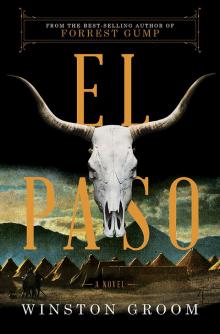 El Paso
El Paso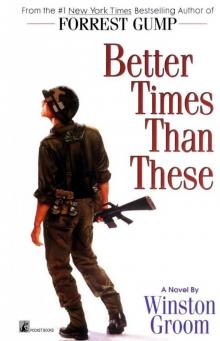 Better Times Than These
Better Times Than These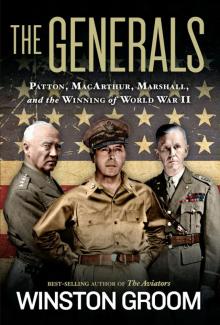 The Generals
The Generals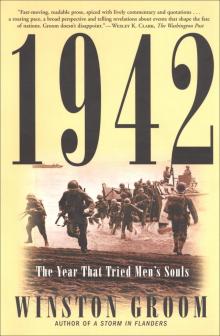 1942: The Year That Tried Men's Souls
1942: The Year That Tried Men's Souls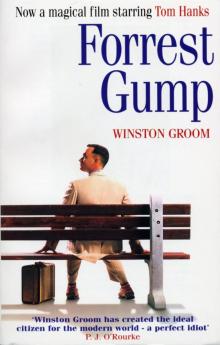 Forrest Gump
Forrest Gump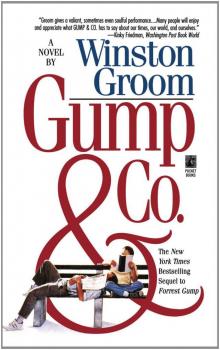 Gump and Co.
Gump and Co.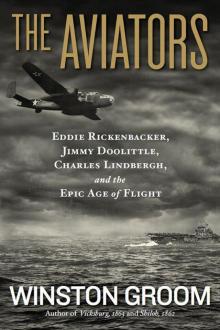 The Aviators
The Aviators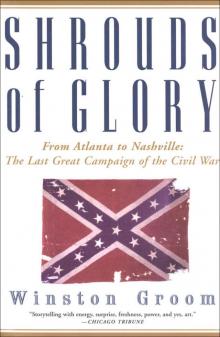 Shrouds of Glory
Shrouds of Glory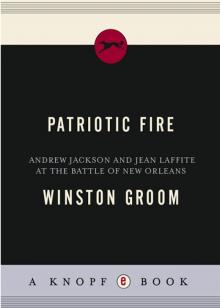 Patriotic Fire
Patriotic Fire Kearny's March
Kearny's March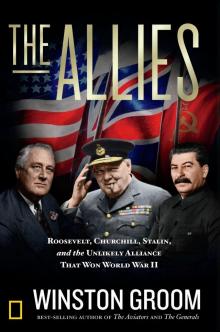 The Allies
The Allies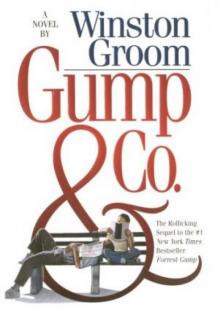 Gump & Company fg-2
Gump & Company fg-2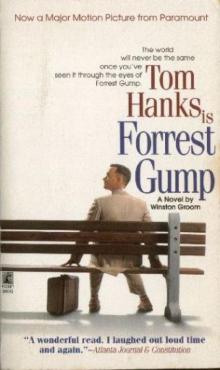 Forrest Gump fg-1
Forrest Gump fg-1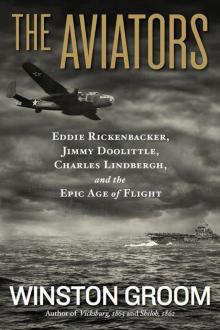 The Aviators: Eddie Rickenbacker, Jimmy Doolittle, Charles Lindbergh, and the Epic Age of Flight
The Aviators: Eddie Rickenbacker, Jimmy Doolittle, Charles Lindbergh, and the Epic Age of Flight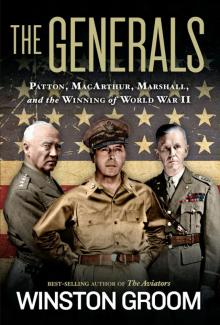 The Generals: Patton, MacArthur, Marshall, and the Winning of World War II
The Generals: Patton, MacArthur, Marshall, and the Winning of World War II